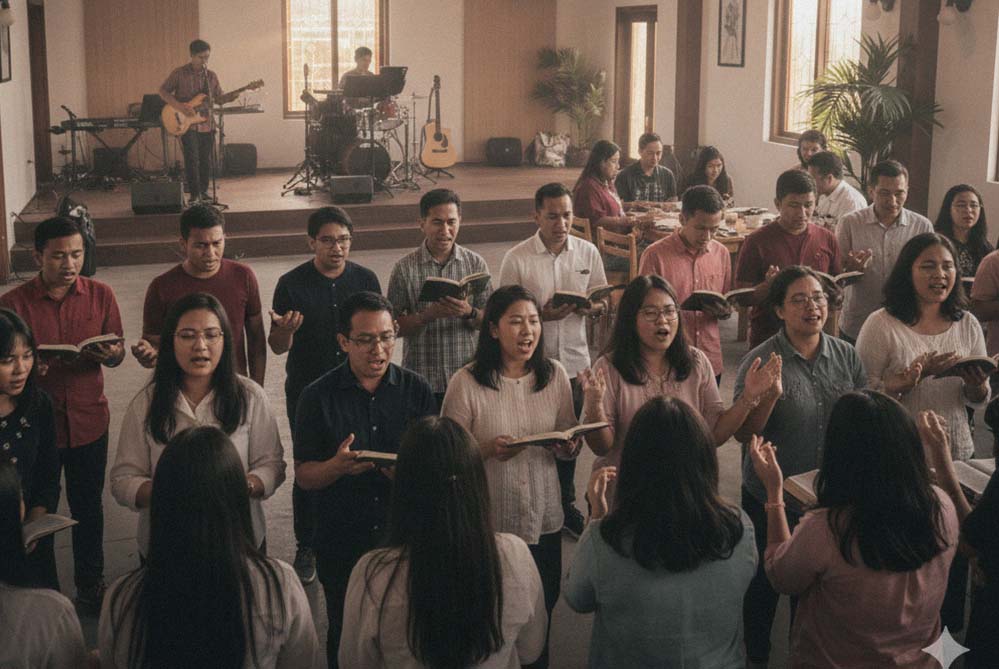Amidst the pressures of life and the increasingly complex demands of the times, the temptation to ignore integrity is growing. In the workplace, honest people are often considered slow because they don't "play pretty." Honesty can feel futile when those who cheat get promoted, and those who speak the truth are sidelined. Often, Christians are caught in a dilemma between faith and pragmatism: how to remain faithful to the truth in the midst of a broken system? It is in this atmosphere that Psalm 100 & 101 speaks with great relevance. True worship, says the psalmist, is not just a song in the temple of God, but a commitment to daily life, whether in the office, at home, or in the community.
Psalm 100 is a liturgical psalm of praise that calls the whole earth to shout and serve God with joy. It is interesting that the word "serve" (abad) also means "work." This means that the worship of God is not limited by the walls of the church, but is manifested in an honest and grateful work ethic. "Know that the LORD is God," exclaims the psalmist (verse 3), inviting the people to know God not only through rituals, but through actions that reflect His love and truth. As Kierkegaard's "ren Kierkegaard" put it, "True truth is not what is known, but what is lived." So every sincere action, every ethical decision in the workplace, is part of true worship.
Psalm 101 deepens that message by featuring the prayer and commitment of a leader who is willing to live in sincerity, "I will observe a blameless life...I will walk in sincerity in my house" (verse 2). Integrity starts at home, from the little things that no one else sees. In moral psychology, this is called self-integration or harmony between values, will and actions. The psalmist understood that it is impossible to lead others correctly without first putting one's own heart in order. True integrity is not flawless perfection, but faithfulness to continue to tread the path of righteousness under the light of God's steadfast love.
Friends of the Bible, in today's life, integrity is the most powerful form of witness. The world of work and our society need more than just professionalism. They need honest hearts. Every believer is called to make faith not just an identity, but a lifestyle: to reject cheating, to be fair even when it's not always ‘profitable’, and to live with sincerity. When we combine worship and ethics, faith and social responsibility, our lives become living psalms, praises that are heard not only in church, but in the spaces where we work and relate. Integrity is the most tangible form of praise to a faithful God. For true worship is not just about what we sing, but how we live after the song is over.

























